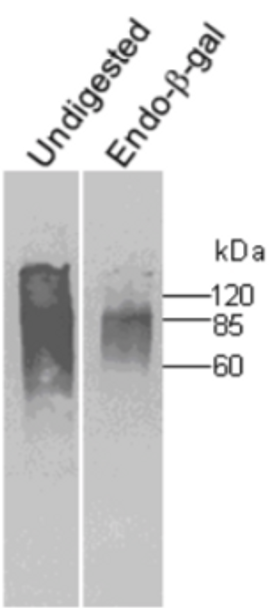Description
Clonality: Monoclonal
Host: Mouse
Purification: Supernatant
Reactivity: Human
Fibromodulin, encoded by the FMOD gene, is a member of a family of small interstitial proteoglycans containing a central region composed of leucine-rich repeats with 4 keratan sulfate chains flanked by disulfide-bonded terminal domains. Its core protein is roughly 58 kDa in size and in its fully glycosylated form reaches 150-200 kDa in molecular weight. Fibromodulin has been proposed to participate in the assembly of the extracellular matrix by linking to collagen type I and II and (negatively) controlling their fibrillogenesis in vitro and in vivo (as also confirmed by the altered collagen fibril structure observed in FMOD null mice). Fibromodulin may also influence TGF-beta signaling by sequestering latent TGF-beta in the extracellular matrix. It is recognized to be a primary component of tumor stroma (particularly well documented in epithelial tumors). Recent observations suggest that fibromodulin is a primary prognostic indicator in chronic lymphocytic B-cell leukemia.






